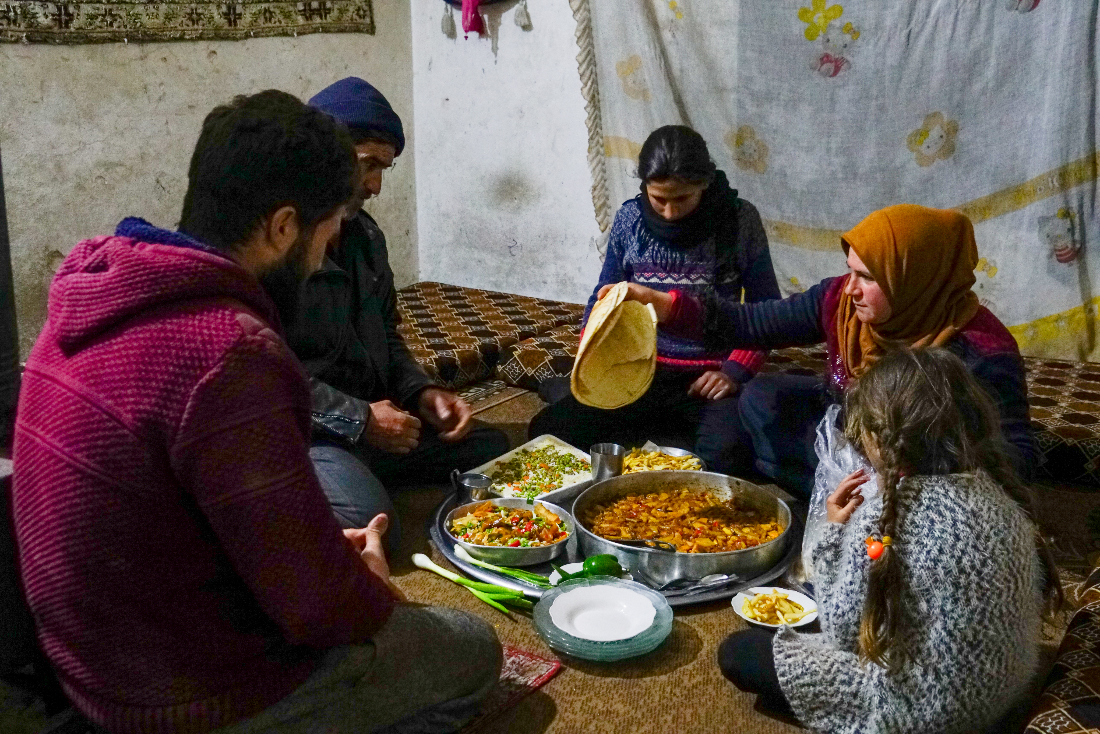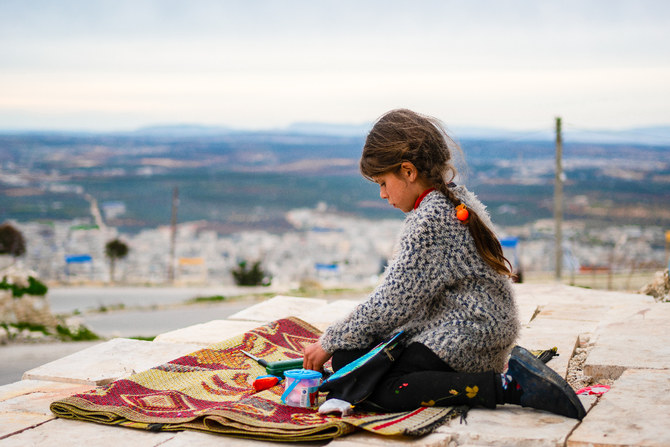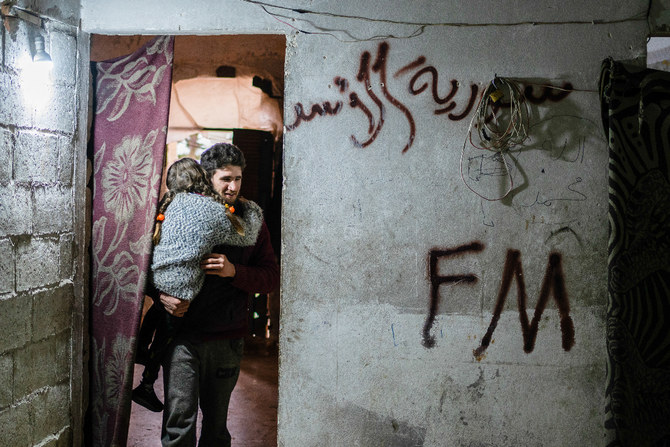DAMASCUS: Families in northwestern Syria are celebrating Ramadan in bomb-ravaged houses against the backdrop of a dire economic crisis, surging rents, and the ongoing 13-year civil war.
During the holy month, Muslims traditionally go without food or drink from dawn to dusk, then break their daily fast with iftar, a meal after sunset. But the challenges faced by people in Syria grow by the year.
“This year is much more difficult because electricity and water are not available in these buildings, and we cannot provide cooking methods,” 48-year-old Ibrahim Qaq told Arab News.
“We are afraid that the house will fall in an instant because all of its walls are cracked due to the air raids it was subjected to previously. When any earthquake or strong bombardment occurs, this house may fall.”

The family was forced to move into an abandoned house that had been damaged by airstrikes. (AN Photo)
Qaq was displaced from the city of Maarat Al-Numan five years ago and moved between refugee camps in northwestern Syria before settling in the city of Jericho, in southern Idlib.
Eight months ago, his rent increased from $25 to $40, forcing him to move his family into an abandoned house close to the front lines of the civil war that had been damaged by airstrikes.
The daily threat of bombs and missiles looms over Qaq and his family. However, he said the alternative, to move back to a camp for internally displaced people, would be even worse, as the tents occupants live in are exposed to harsh weather during the winter and summer months.
His wife, Fatima Umm Zakaria, said: “We became afraid of the arrival of the month of Ramadan because it requires many costs that we cannot afford because we have no fixed source of income and we lost all of the money we had.
“During Ramadan, we love to cook and live in the beautiful atmosphere of Ramadan, but the war has exhausted us.”
The ever-worsening economic and humanitarian crises, coupled with the effects of the ongoing civil war, have also forced young people in northwestern Syria, including Qaq’s children, to set aside their dreams.

The daily threat of bombs and missiles looms over Qaq and his family. (AN Photo)
“I dropped out of school because we were displaced and I started working in the construction industry with my brother in order to cover the expenses of the house,” 20-year-old Omar Qaq told Arab News.
“I was hoping to complete my studies but there is no room for that in light of these circumstances in which we live.”
He said he wishes his family could return to its home in Maarat Al-Numan and celebrate Ramadan in the way they did before the war, rejoicing in its arrival.
The UN’s World Food Program was forced to suspend aid to the Syrian people at the beginning of this year due to lack of funding, which has further eroded living conditions in a country where millions lack sufficient access to food. About 6 million people live in northwestern Syria, of which almost 50 percent are displaced, according to aid agencies.

























